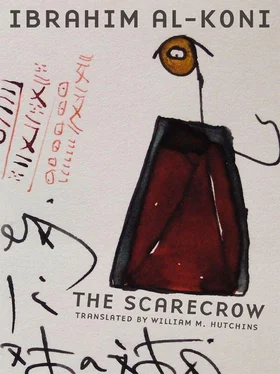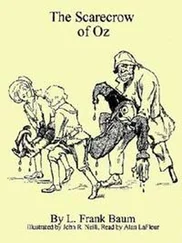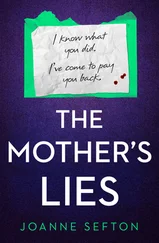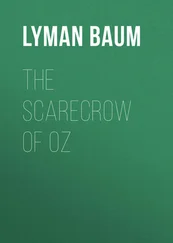Their comrade stood above them, groaned from exhaustion, and bared his forearms, which he thrust into the flames as if he had decided to add them to the fire. He pulled them back deftly once he had absorbed some heat. He explained, “The second line is the key. Or — have you forgotten that we have buried seven moons and seven suns in this place for no other reason than to bicker about prophecy?”
They drew back, retreating en masse as if repulsed by food after tasting only a bite or two. It seemed that the word “prophecy” awakened in them the ancient gravitas that the desert’s emptiness had pilfered from them. They had neglected to pay attention, had forgotten, had rushed off to rove around, raced each other, wrestled with one another, snatched pieces of bread and dates from each other like young men, and shouted back and forth the way slaves and herders do.
News of the prophecy awakened the ghoul of gravitas and with one blow cast them into the fetters that restrain rulers. Amasis, however, showed them no mercy. He raised his eyes to the horizon, which was flooded by twilight rays, and repeated the second line as if singing a plaintive ballad: “Once you have finished, solve the riddle with sticks.”
Darkness continued to advance on the western horizon. Then moisture, perhaps tears, gleamed in his eyes. He said with a soothsayer’s intonation, “In the ancient tongue, the first peoples called casting lots ‘sticks.’ Have you forgotten?”
They exchanged a supercilious look. Afterward they fled to the wasteland, to a stern, barren wasteland that shot off to eternity in every direction, strewn with gray rocks of extreme severity. In the distance loomed a lone acacia tree, which looked depressing in the labyrinth’s desolation and — by its very existence — made the labyrinth all the crueler and sterner.
But the evening turned the matter head over heels and converted the sky into a desert and the desert into a sky. Darkness slipped down to spoil the beauty of the horizon. In the plaza of the heights, another nakedness was born and stars began to raid it. In its precincts, stars and spheres began to call back and forth to each other with allusive winks, as if eager to divulge a fear that the sovereignty of the lights might take them by surprise and erase their glow when the moon rose. A seditious charm was born in the upper desert while the lower desert died for the time being.
Imaswan objected, “Do you want us to cast lots to see which one of us will be conducted to the ghoul’s corral?”
But the chief merchant could no longer bear the inspiration patiently. So he crept forward till he almost stuck his knee into the fire. He shouted zealously, “Wait! I think Amasis is onto something. ‘Sticks’ in soothsayers’ jargon really means casting lots, because our ancestors only knew how to cast lots with sticks, but the prophecy that directed us to leave the matter to chance did not place us in the pool of candidates.”
The hero broke in: “What do you mean?”
“Sticks are a method of casting lots and therefore a game supervised by a god named Luck.”
“What are you saying?”
“The god of sovereignty is the Spirit World, and its partner is Luck. Luck and sovereignty share a homeland. What alternative do we have to commissioning Luck to bring us a comrade who is his neighbor in the Spirit World?”
Ah’llum looked around anxiously at his comrades. The man with two veils explained, “Games of chance have many aspects, but the ones farthest removed from calamities are the path our ancestors chose and what they preferred over all others.”
They held their breath, extended their necks, and waited for more information with greater concern than if awaiting a prophecy.
The man with two veils raked the fire with a poker and added with a sage’s cool detachment, “When a matter puzzled them and no inspiration came, they bathed with herbal salves, sacrificed a chameleon, and rushed off to choose the first man they met in the wilderness to be their ruler.”
He was silent for a long time, gazing at the fire. Then he said mysteriously, “We’ll set off tomorrow and bestow the title of leader on the first creature we meet inside the walls of the oasis!”
1
They reached the oasis at dusk but did not breach the walls or traverse the Western Hammada Gate till sunset’s gloom had mastered the earth. Then they crept through the land, which was enveloped in threadbare darkness that was not concentrated in tenebrous recesses but remained mysterious, excited whispered enticements in weak souls, and opened a portal to the nether reaches, which released a morose creature disguised in human raiment to lay a trap for mankind. The Spirit World’s foot soldiers rallied their allies to form legions of armies to combat the people of the wasteland and take revenge for their tyranny. These legions returned to their homes in the Spirit World bearing booty and loot. Simpletons — people who had never ever suspected that other creatures might share the desert world — simply assumed, however, that their tribe had been attacked in a treacherous raid by some neighboring tribe. The pious ancestors were also pleased to emerge in the dark gloom from their spiritual world. They disguised themselves in the rough attire of wayfarers before visiting their descendants in this or that hamlet, where their offspring whiled away the night entertaining them the way desert people honor travelers, till morning drew nigh and light threatened to assail the wasteland just as drowsiness was assailing their hosts. Then the guests slipped away and melted into the open countryside, leaving their descendants some treasures stuffed into a knapsack.
In the tenebrous depths’ void, other night creatures materialized, but they deliberately chose their former bodies to terrorize their relatives. They emerged to frighten and harm their former enemies.
In these dark recesses Wantahet awoke to devise the project of the eternal ruse. He, however, unlike all the dark recesses’ other denizens, waited till day to accost the tribes — the better to deceive them.
In the desert gloom, creatures were generated in people’s souls — creatures those people did not recognize. Then with all the impetuousness of ecstatics, they liberated themselves from their souls, which they pawned to other people in order to gull them of their souls and to downplay their own disgrace, referring to this sacrificial offering as “passion.”
In the gloom of the barren continent, inanimate objects exchanged roles and beings migrated to the bodies of other creatures. Then the desert itself migrated from the desert’s patch of ground.
On nights when no moon was visible and lights were slow to appear, cunning strategists were cautious at crossroads, because they knew from experience that talking to strangers after dusk is a danger that always risks being a trap, an evil, or a snare.
2
They hovered around him like jinni specters, addressing him with incantations. The first shouted as if performing a sorrowful ballad, “We, master, are a people who have been unable to select a head of state. Therefore we have entrusted the affair to its master, to the entity we refer to in our stupid language as a Spirit World.”
The second sang, “We obeyed the report that eternity sent us as a prophecy. So we set forth, rolled in the dust of emptiness, and washed our hearts with separation’s water. Then we were told that our only recourse lay in following the example of our ancestors.”
The third sprang aside and then leaped with a gracious bound that mimicked an avian dance and perhaps also the ecstasy of folks who are obsessed by longing and who go into a trance when people sing. He recited, “We have come to entrust the matter to destiny’s hand. We have come to court danger!”
Читать дальше












